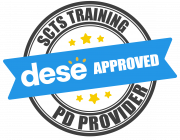The Importance of School Districts Meeting Legal Requirements of the New IEP 2023
In 2023, the educational landscape for students with disabilities took a significant turn with the introduction of the new Individualized Education Program (IEP) standards. These standards, updated for the first time in over two decades, are not merely guidelines but stringent requirements that all U.S. school districts must adhere to. Understanding and implementing these changes is crucial for school districts not only to enhance the educational experiences of students with special needs but also to meet legal obligations and avoid potential liabilities. This blog post explores the importance of these legal requirements and the impact they have on school districts.
Legal and Educational Implications
-
Compliance and Accountability
The IEP 2023 standards have ramped up the accountability measures for school districts. Compliance is no longer a matter of adhering to broad educational goals but involves specific mandates that require precise implementation. This shift means that school districts must regularly audit their programs, ensure staff are adequately trained, and report compliance status to regulatory bodies. Failure to meet these standards can lead to legal consequences, including sanctions and increased oversight, which can tarnish a district’s reputation and effectiveness.
-
Ensuring Educational Equity
One of the core goals of the IEP 2023 is to ensure that all students, regardless of their disabilities, have access to quality education that is equitable to that of their non-disabled peers. This legal requirement challenges districts to dismantle barriers to inclusion and provide the necessary accommodations and modifications. It aligns with broader civil rights protections under the Americans with Disabilities Act (ADA) and the Individuals with Disabilities Education Act (IDEA), emphasizing the right to a free and appropriate public education in the least restrictive environment.
-
Enhanced Parental Involvement
The IEP 2023 standards legally mandate increased parental involvement in the educational planning and decision-making process. This legal stipulation recognizes parents as critical stakeholders and ensures that they have a voice in shaping the educational path of their children. School districts must facilitate this involvement through accessible communication methods, regular meetings, and providing parents with the necessary resources to understand their rights and the educational process. This not only strengthens compliance but also enhances the collaborative effort between home and school, which is pivotal for the success of students.
-
Transition Planning
Improved transition planning is a significant legal requirement under the new IEP 2023 standards. It mandates that school districts begin this process earlier and include comprehensive planning that covers educational, vocational, and life skills aspects to prepare students for post-school life. This requirement is crucial for ensuring that students with disabilities are not left behind as they move into adulthood and that they have the skills and resources necessary to navigate higher education, employment, and independent living.
-
Professional Development
The IEP 2023 also legally requires that educators and support staff receive ongoing professional development specifically tailored to the needs of students with disabilities. This is critical for ensuring that educators are equipped with the latest instructional strategies, technological competencies, and regulatory knowledge necessary to deliver high-quality education and meet IEP goals. Investing in staff training not only complies with the law but significantly enhances the educational outcomes for students.
New IEP 2023 Standards: A Legal Mandate
The new IEP 2023 framework was designed with a dual focus: to address longstanding gaps in special education and to align with contemporary educational practices and technologies. It sets forth comprehensive standards that school districts are legally obligated to implement. These include, but are not limited to, increased integration of technology, earlier and more detailed transition planning, and a greater emphasis on inclusive education.







